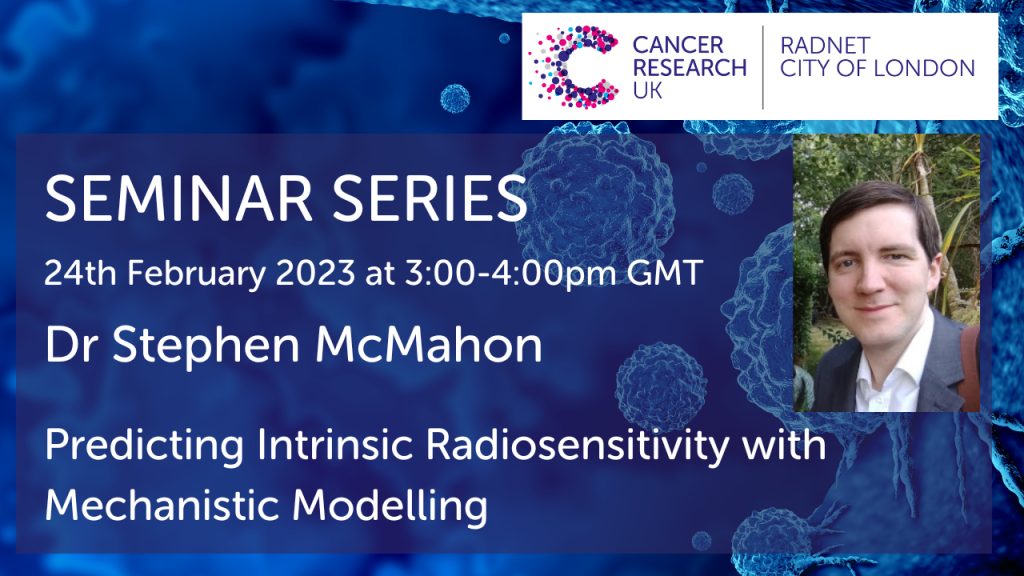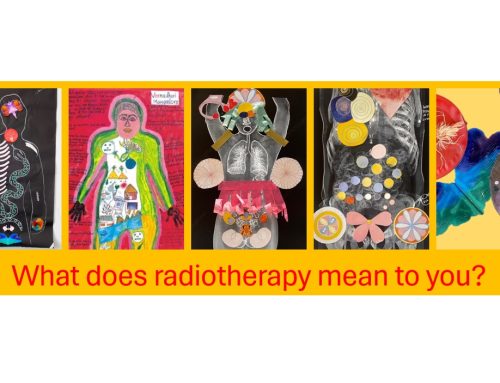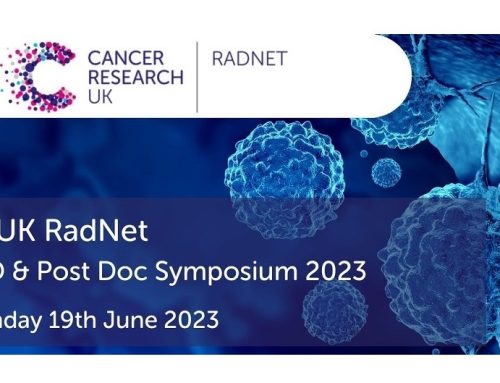
CRUK RadNet City of London Seminar Series #19
‘Predicting Intrinsic Radiosensitivity with Mechanistic Modelling’
Friday, 24th February 2023 at 3:00 – 4:00pm GMT
Join the Zoom Seminar: https://ucl.zoom.us/j/96159011871?pwd=c2YrM0hWb08rL3dzUjJDZXJBWm9adz09
Meeting ID: 961 5901 1871
Passcode: 045331
Hosted by Dr Charles-Antoine Collins Fekete, Research Fellow at UCL, we warmly welcome Dr Stephen McMahon, Queen’s University Belfast to join us and deliver a seminar talk on ‘Predicting Intrinsic Radiosensitivity with Mechanistic Modelling’
Abstract:
The intrinsic radiosensitivity of cancer cells is a significant factor in their therapeutic response. However, although numerous methods can characterise cellular sensitivity in the laboratory, there is a lack of tools with which to predict the radiosensitivity of novel cancers in the clinic. This presents a significant challenge to the development of individualised radiotherapy. The development of mechanistic models provides an approach to address this need, linking our knowledge of fundamental mechanisms of DNA repair to radiation response.
In our work, we have developed a model (Mechanistic DNA Repair and Survival, Medras) which begins from distributions of DNA damage within the cell and simulates the kinetics and fidelity of repair, the resulting genetic rearrangements, and the probabilities these alterations lead to mutations, chromosome aberrations, or cell death. These predictions can take into account cellular phenotype (including cell death and DNA repair pathways) and irradiation conditions (including cell cycle phase and radiation quality). Significantly, this approach enables the prediction of the response of novel cell lines based on their phenotype, without cell-specific fitting parameters.
By fitting to a reference dataset, DNA repair kinetic and fidelity parameters were determined. Good agreement was obtained over more than 300 data-points covering DNA damage, misrepair, mutation and chromosome aberration formation. The model was also shown to be predictive for overall radiosensitivity, predicting the sensitivity of a broad panel of cells to both X-rays (R2=0.74) and charged particles (R2=0.77). Ongoing work seeks to link these features to the underlying genetics of different cell lines, to enable this approach to be translated into a clinical predictive tool.
About our speaker:
Dr Stephen McMahon is a UKRI Future Leaders Fellow and Reader in the Patrick G Johnston Centre for Cancer Research at Queen’s University Belfast. His background is in physics, with a PhD which focused on the dose-modifying effects of gold nanoparticles in radiotherapy. His subsequent research has focused on applying computational models to better understand a range of different processes in radiotherapy, including bystander effects and the Relative Biological Effectiveness of high-LET radiations. His group is currently focused on developing mechanistic models of radiotherapy response at the cellular level, with the goal of developing tools to enable the prediction of individual patient sensitivity to enable more personalised radiotherapy in the future





Leave A Comment